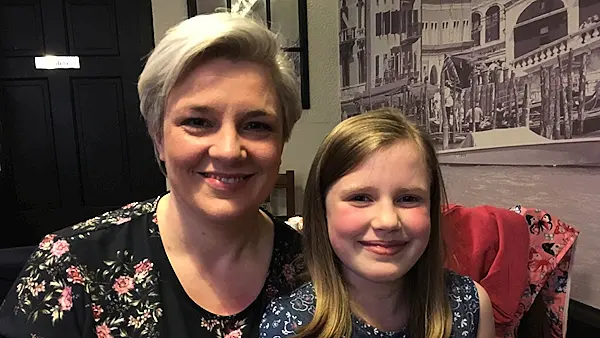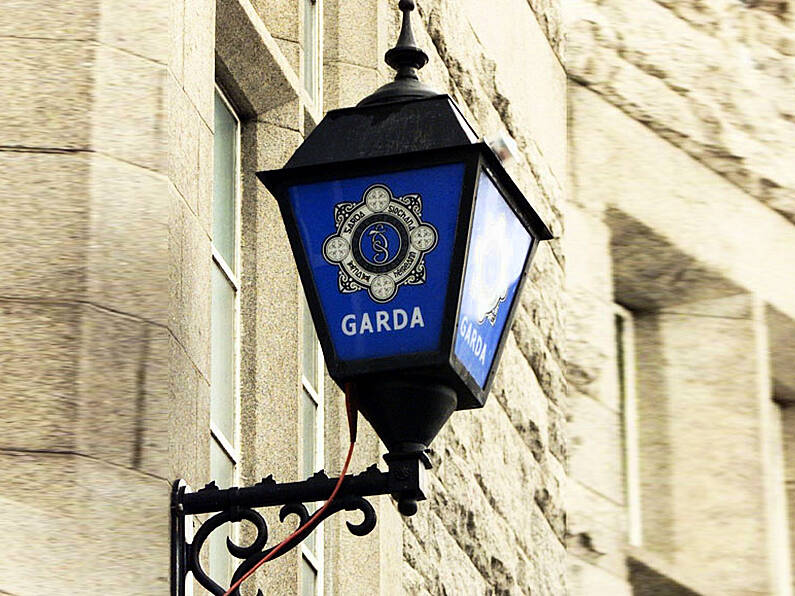A groundbreaking treatment which allows highly allergic children to eat peanuts has been hailed as “a gamechanger”.
Consultant paediatrician Jonathan Hourihane said the results of the world's largest peanut allergy trial were “truly transformative” for families unable to eat out, or let anyone other than direct family prepare food, for fear of accidental peanut exposure and the possibility of anaphylactic shock.
Professor Hourihane, who led the Irish leg of the two-year trial, said the results offer a "real lifeline".
The tolerance to peanut protein that the children demonstrated after the trial offered sufferers the ability to cope with accidental exposure in the community, he said.
50% tolerated up to four peanuts - 'a real lifeline'
The trial saw participants go from allergic reactions such as immediate vomiting, swelling of the throat, blisters on tongue, stomach pain and other signs of hypersensitivity after exposure to miniscule amounts of peanut protein, to being able to safely ingest up to four peanuts.
As there is currently no approved treatment for peanut allergy, Prof Hourihane said the new oral immunotherapy, AR101, “offers a real lifeline”.
Some 30 children aged four to 16 were recruited to the Cork trial - which had 551 participants globally - of whom half were given a dummy drug.
Before treatment, none could tolerate more than approximately one-tenth of a peanut. Afterwards, 67% of those treated with AR101 could tolerate at least a single dose of approximately two peanuts, while 50% tolerated a single dose of approximately three to four peanuts.
Prof Hourihane, principal investigator at the INFANT centre and professor of paediatrics and child health at University College Cork, said while AR101 was “not a cure”, it was a means of controlling the allergy” and of offering people “real safety”.
“The tap is not turned off completely but it is down to a dribble,” he said.
Evelyn Noonan, whose daughter Sarah Jane (11), from Bruff, Co Limerick, took part in the Cork trial, said they had “never left the country” with their daughter prior to the trial, for fear of accidental exposure, but had since been to London.
The research and results of the trial will be published in the prestigious New England Journal of Medicine this week.
INFANT Director Geraldine Boylan said Prof Hourihane’s work was “an example of the excellent, world leading clinical research ongoing at the INFANT centre at UCC, which is making a huge difference to lives of children and their families”.
Earlier this year, INFANT was the only centre out of seven Science Foundation Ireland-funded centres not to have funding renewed for a second term.
Peanut allergy is the most common food allergy and the single cause of most food allergy deaths.
Aimmune Therapeutics, the company behind AR101, will shortly apply for a licence for the drug in the US. The drug can only be administered in a hospital setting.
CASE STUDY - Sarah Jane Noonan
Dining out, holidaying abroad, even something as simple as exchanging a kiss with someone who's eaten a Snickers - Evelyn Noonan has spent years dealing with potential exposure to the foodstuff that could cause her daughter to go into anaphylactic shock.
Sarah Jane (11), from Bruff, Co Limerick, was diagnosed as highly allergic to peanuts, aged four.
“As a baby, she was underweight; she hadn’t been very well. The irony is I tried to fatten her up with peanut butter but as soon as it touched her tongue, she’d start screaming,” Evelyn says.
Evelyn mentioned this reaction to their GP and they were referred to leading paediatric allergist Professor Jonathan Hourihane, principal investigator at the INFANT centre for perinatal research.
Sarah Jane was diagnosed as highly allergic to peanuts and her mother engaged in a policy of strict avoidance.
Two years ago, Sarah Jane became one of circa 30 Irish children to sign up to the world’s largest peanut allergy trial, with the Irish leg led by Prof Hourihane.
She travelled regularly from Limerick to Cork as the oral immunotherapy being trialled - AR101 - can only be administered in a hospital setting.
The trial involved introducing initially minute controlled amounts of peanut protein, with escalation over a sustained period of six to 12 months, building up a patient’s tolerance to peanut.
“She was able to tolerate 1000mg dose of peanut protein - the equivalent of four peanuts - at the exit food challenge, coming from a child who reacted to 30mg (about one tenth of a peanut) before the challenge,” Evelyn says.

Mum Evelyn Noonan and Sarah Jane (11).
While there are downsides to the treatment - Sarah Jane has to rest for an hour before taking the drug and for two hours afterwards, necessitating significant re-jigging of daily activities - since the trial, her family has been able to travel abroad for a holiday, which they had never previously done.
They travelled to London in September and when Sarah Jane was sick on the plane coming home, Evelyn says for the first time ever, they did not immediately assume allergic reaction. They put it down to excitement and “too much sugar”.
While her allergy has been limiting - keeping them from simple enjoyments such as smoothie shops for fear of contamination with peanut - Sarah Jane has taken it all on the chin, Evelyn says.
“She’s a brilliant kid. She knew going into the trial that it might not work, but she loves science and the thought that by taking part, she might be helping others.”
And while it’s been an uphill battle, Evelyn says other parents are generally fairly understanding when they get letters home from school saying “no peanuts”, even making sure Sarah Jane is ok to eat what’s on offer at birthday parties.
Extended family have been a great support, while teachers at Scoil Dean Cussen in Bruff have trained in use of an epi-pen, to treat anaphylactic shock, as has Sarah Jane’s girl guide leader. Even Evelyn’s employers, Limerick City and County Council, have allowed flexible working days to facilitate Sarah Jane’s treatment regime.






